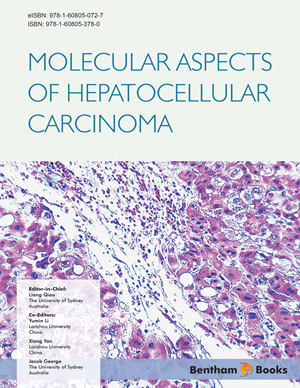Abstract
Hepatocellular carcinoma is the fifth most common cancer worldwide. Studies of the molecular mechanisms leading to hepatocarcinogenesis hold the key to improvements in diagnosis and treatment of this disease. Animal models give us the opportunity to study these mechanisms by manipulating the risk factors and associated genetic alterations that lead to hepatocarcinogenesis. Worldwide, hepatitis B virus (HBV) and hepatitis C virus (HCV) infections account for more than two thirds of HCC cases. Therefore, HBV- and HCV-induced hepatocarcinogenesis in animals would most closely mimic the aetiology and possibly the associated pathogenesis of human HCC. Other risk factors include exposure to chemical carcinogens and other causes of cirrhosis. Rodents remain the most valuable animal models and can be classified as infection-associated, carcinogen-induced, and transgenic or inflammatory. From studies of these models, many potential molecular mechanisms have been identified as contributing to hepatocarcinogenesis, such as HBx, c-Myc, TGFα, IGF-II, H-ras, p53, NF-κB, and Wnt signaling pathways. Transgenic mouse models with the potential for wider use include the β-catenin/H-ras double transgenic mouse, the TGFα/c-Myc double transgenic mouse and the c-Met conditional knockout mouse (MetLivKO). These mice develop liver tumours with high penetrance and a short latency and pathological features similar to human HCC. Other species including rabbits, woodchucks, tree shrews, dogs, pigs and primates have been used to study diagnostic and therapeutic options in HCC. However, more work is required to unravel the sequence of events that leads to HCC in order to guide future prevention, diagnosis and treatment.
Keywords: Animal model, carcinogen, hepatocarcinogenesis, hepatocellular carcinoma, liver cancer, transgenic mouse, tumour promoter.






















